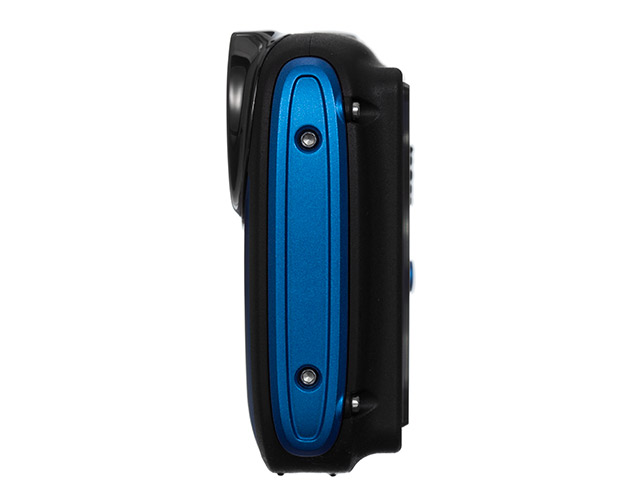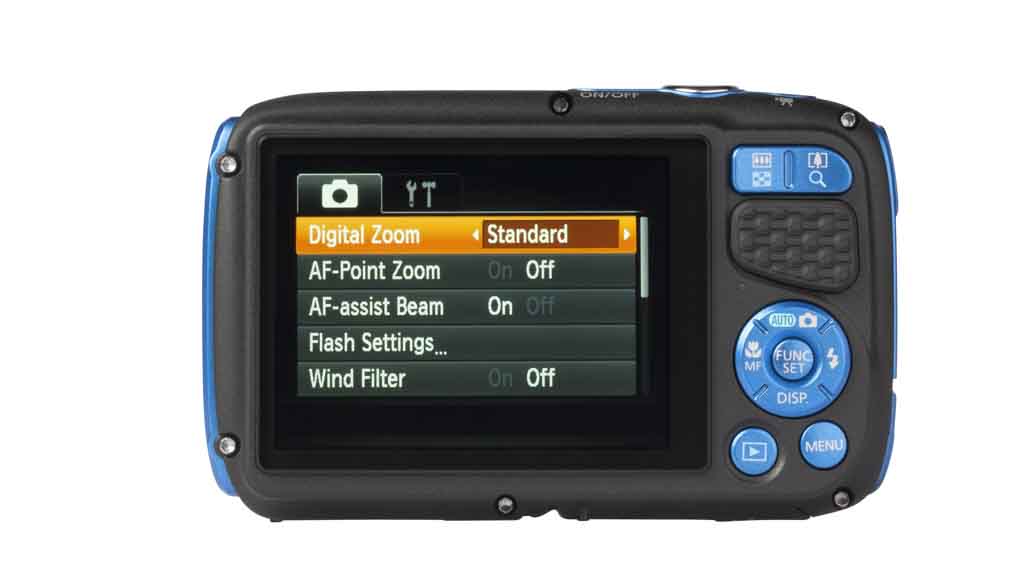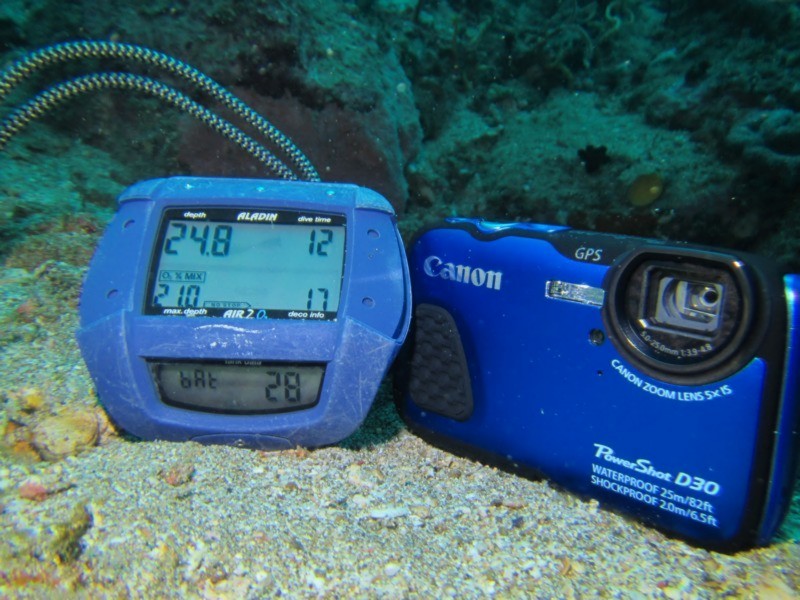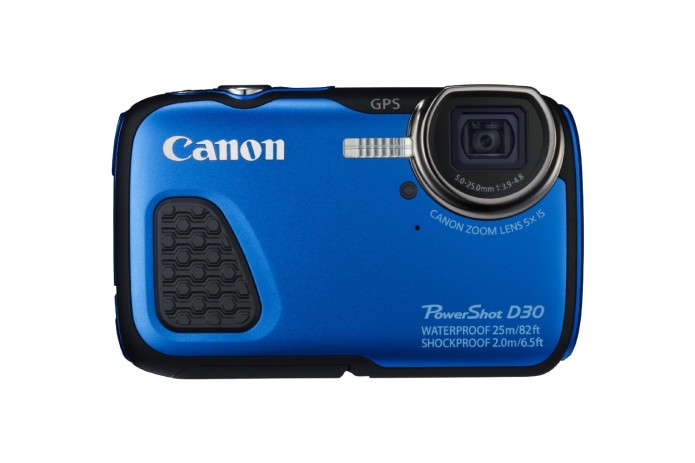Following in the footsteps of the highly regarded and versatilePowerShot D20 comes the Canon PowerShot D30, a camera that Canon is touting as the “World’s Deepest Waterproof Camera”. Indeed, rated to be submersible to a record-breaking 82 feet below sea level, the D30 seems an impressive addition to a strong lineage of tough cameras.
This is a full 49 feet deeper than the D20’s 33-foot rating, which should certainly garner the attention of you scuba divers out there. We’ve now left the Bimini Road behind and have headed for some of the Caribbean’s more popular resort dives and into the wrecked hulls of ships 80 feet down… Sweet!

Another rugged feature receiving an upgrade is the shockproof rating going to 6.5 feet (up from 5ft), while the freezeproof rating remains at 14 degrees F. Other notable additions include a GPS tracker for tagging the time, date and location of shots taken and a new Sunlight LCD mode, allowing for quicker adaptive behavior between underwater shooting and terrestrial shooting and, according to Canon, significantly reduced glare from the screen while in direct sunlight.

One thing Canon D20 shooters will notice absent in the D30 is the now instantly recognizable, signature curvy design of the D20.

Although it should be noted that the D30 does still have a rather unique look as compared to most other current tough offerings, with nice, rounded corners that don’t appear to threaten tearing the pockets of your swim trunks, and an attractive rubber grip on the front and rear panel.
The Canon D30 drops the signature curvy design of its predecessor in favor of a sleeker, more rounded look with a large rubber grip out front.
The top deck appears much the same on the D30 except for several notable changes. The movie record button has been moved from the rear panel to the top deck and now sits alongside the shutter button, while the play button has been removed and placed below the 4-way control pad. Both of these changes make sense to us, and having the play button handy near the screen seems a logical move indeed.
The zoom toggles are in the same position but placed slightly closer together for a more intuitive approach, and the rear thumb rest just below the toggle has been widened for better grip, now occupying the space where the movie record button used to be.

The control pad functions remain largely unchanged from the D20, but placed in a slightly tighter arrangement, and the menu button rests just below and to the right of its position on the D20.

Smart AUTO helps users by detecting 32 predefined shooting situations for ideal exposure, and Intelligent IS provides six different image stabilization modes. This should be especially beneficial for video shooting, as the D20 was not very capable in the IS department for video.

| Basic Specifications | |
|---|---|
| Full model name: | Canon PowerShot D30 |
| Resolution: | 12.10 Megapixels |
| Sensor size: | 1/2.3 inch (6.2mm x 4.6mm) |
| Kit Lens: | 5.00x zoom (28-140mm eq.) |
| Viewfinder: | No / OLED |
| Native ISO: | 100 – 3200 |
| Extended ISO: | 100 – 3200 |
| Shutter: | 15 – 1/1600 |
| Max Aperture: | 3.9 |
| Dimensions: | 4.3 x 2.7 x 1.1 in. (109 x 68 x 28 mm) |
| Weight: | 7.7 oz (218 g) includes batteries |
| MSRP: | $330 |
| Availability: | 04/2014 |
| Manufacturer: | Canon |
| Full specs: | Canon D30 specifications |
The PowerShot D30 sports a 12.1-megapixel High-Sensitivity CMOS sensor, a DIGIC 4 Image processor and is capable of recording Full HD 1080p movies at 24fps via a dedicated movie button. The Canon D30 is slated to ship starting in April 2014 for a retail price of about US$330 and will only come in blue.
(imaging-resource.com)


